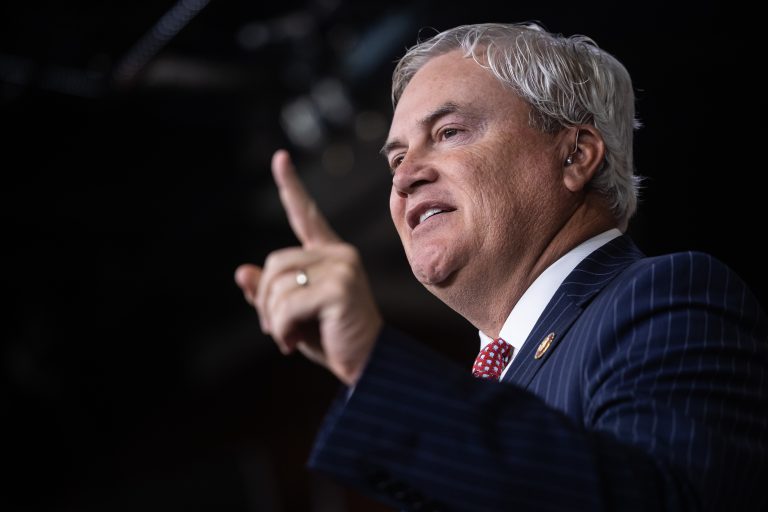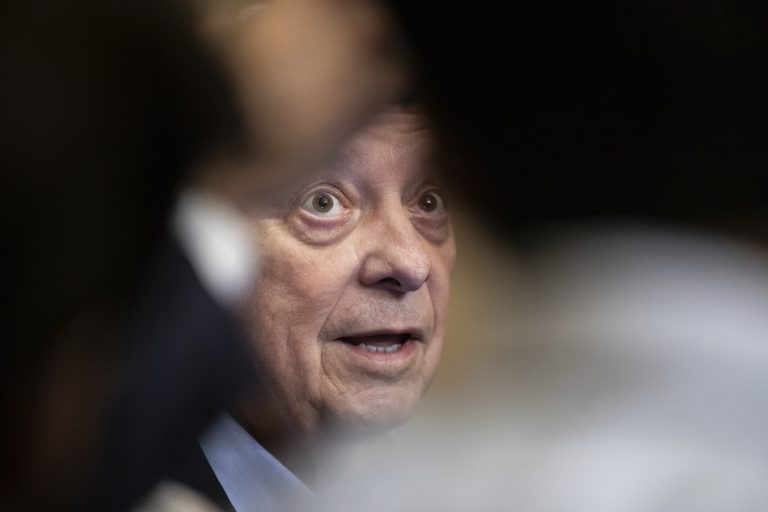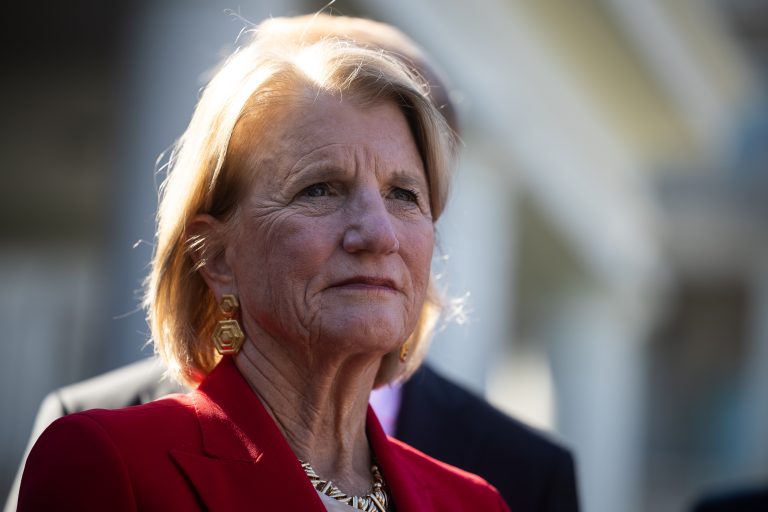Democrats grappled Monday with the first major fraying of their coalition amid the government shutdown, with a federal employee union calling for them to stand down four weeks into the standoff.
There was no immediate surrender from party leaders, but the union’s plea forced many Democratic lawmakers into a defensive crouch. Their No. 2 Senate leader said it would be a subject of internal conversations this week with bipartisan talks all but ground to a halt.
“It has a lot of impact. They’ve been our friends,” Sen. Dick Durbin (D-Ill.) told reporters Monday, adding that Democrats “take them seriously.”
The push by the American Federation of Government Employees for Congress to immediately pass a “clean” stopgap funding bill, which is what has been offered by Republicans, is among a laundry list of pressure points that are bearing down on lawmakers.
By the end of the week, members of the military will miss their next paycheck, Supplemental Nutrition Assistance Program benefits will run out and Americans who get their health insurance through Affordable Care Act exchanges will confront premium spikes as open enrollment starts without a deal on how to extend soon-to-expire subsidies. The ramifications of the shutdown on air travel also escalated over the weekend.
Sen. Mark Warner of federal-worker-heavy Virginia has been firmly in favor of confronting President Donald Trump and congressional Republicans over the expiring ACA subsidies and health care. But the Democrat struck a more cautious note Monday.
“Look, I think we can still deal with health care and SNAP, but I know … the shutdown is a real challenge,” he said. “Federal employees feel like they’ve been abused and also going for weeks now without pay.”
He sidestepped a question on whether the AFGE’s statement would change his position: “Let’s see.”
Senate Minority Leader Chuck Schumer met Monday evening with his leadership circle, including Durbin. The entire Senate Democratic caucus will meet for a closed-door lunch Tuesday.
Schumer didn’t directly address the union’s new position during a floor speech Monday. Spokespeople for Schumer also did not respond to a request for comment on the group’s statement, in which national president Everett Kelley said, “It’s time to pass a clean continuing resolution and end this shutdown today.”
Instead, Schumer noted the cascading consequences of the shutdown and laid the responsibility for ending it on Trump and Republicans, saying that the president “skipped town for his second foreign trip in a month.”
“The president should stop focusing on foreign escapades, on ballrooms, on bailouts for Argentina, and start focusing on negotiating with Democrats,” Schumer said.
House Minority Leader Hakeem Jeffries told reporters in Chicago that Democrats aren’t budging.
“We want to find a bipartisan agreement that reopens the government immediately,” he said. “We’re going to continue to stand by hardworking federal employees, and our position has not changed over the last several weeks.”
But among the rank-and-file, there are growing signs of bipartisan frustration about the stalemate, with few signs of movement in the Capitol for weeks.
Sen. Lisa Murkowski (R-Alaska) in a floor speech Monday called for the Senate to abandon its typical four-day workweek and gavel in Friday, joking with reporters afterward that she went “rogue.”
“I don’t think we should be going home and just behaving as if this was another week in the United States Senate — not when we have a government shutdown,” Murkowski said. “There is so much, so much that is coming at us like a freight train.”
Murkowski, who has an independent streak, pointed to the looming SNAP deadline and ACA open enrollment as a “pivot point” for Congress. She spent time speaking with several colleagues on the Senate floor Monday, including Democratic Sens. Maggie Hassan of New Hampshire and Catherine Cortez Masto of Nevada, as well as GOP Sen. Katie Britt of Alabama.
“I thought it was really constructive,” she said about the conversations, adding that lawmakers need to get to a point where “we’re not going to leave the room until we work this out.”
Senate Majority Leader John Thune and Speaker Mike Johnson pointed to the looming deadlines Monday and said the onus is on Democrats to relent. Johnson cited the union’s statement during a news conference, saying he hoped it impacted Democrats’ thinking.
“They understand the reality of this,” he said.
But Republicans are facing a tactical divide of their own as they debate whether to hold standalone votes on the Senate floor this week that would ease particular pain points such as the SNAP lapse and paychecks for active-duty troops.
Senate GOP leaders won’t make a final decision until a closed-door lunch Tuesday as they hear out different factions within their conference. But they are wary of easing up on Democrats just as they show signs of fraying and are seen as unlikely to allow votes on the so-called “rifle-shot” bills.
Durbin, for instance, predicted Monday that bills from Sen. Ted Cruz (R-Texas) that would pay air traffic controllers and TSA agents and from Sen. Josh Hawley (R-Mo.) that would keep food aid flowing would likely pass with Democratic support.
What was also clear Monday is that Democrats continue to feel comfortable laying the blame for the shutdown at Trump’s feet — especially as he spends the week in Asia.
That colored responses from many Democrats, including Sen. Chris Van Hollen (D-Md.), who said in a statement that “Trump should spend less time traveling around the world and more time negotiating an end to his shutdown.”
Van Hollen is in talks with Sen. Ron Johnson (R-Wis.) to try to find an agreement on legislation that would pay federal employees and active-duty military troops. Democrats are also proposing limiting Trump’s ability to fire federal employees for the duration of the shutdown.
“We’ve been engaged over the weekend and now,” Van Hollen said Monday.
Another Democrat from a fed-heavy state, Virginia’s Tim Kaine, also invoked Trump Monday in brushing off the union’s new stance.
“The AFGE would not want us to cut a deal and then have Trump fire a bunch of people next week. If we cut a deal and then he did that, they would come to us and say, ‘What the hell were you guys thinking?’” Kaine told reporters.
Shia Kapos contributed to this report.



